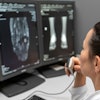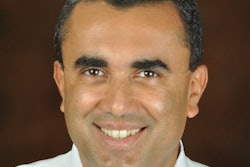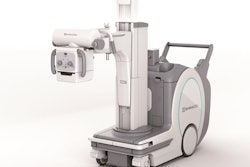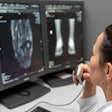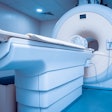Dear AuntMinnie Member,
A Florida radiologist who interpreted medical images from last week's high school mass shooting is calling for a ban on the AR-15 assault rifle, the type of weapon used in the massacre.
In an article for the Atlantic, Dr. Heather Sher described the carnage she saw as victims from the shooting began arriving at her hospital on February 14. She saw scans of organs destroyed by high-velocity AR-15 bullets; she described the organ of one shooting victim as "an overripe melon smashed by a sledgehammer."
Dr. Sher is unfortunately no stranger to gun trauma, and she even interpreted scans from a shooting in Fort Lauderdale last year in which 11 people were shot by a man with a 9-mm handgun. But the AR-15 leaves injuries that are far more damaging -- and lethal -- than those from handguns, she wrote.
Dr. Sher concluded her article with a passionate call to ban AR-15 assault rifles, which she believes "have no place in a civilian's gun cabinet." It's a belief she has come to based on firsthand evidence as a radiologist. Read more about her story by clicking here.
Do radiologists see sicker patients?
Do radiologists see sicker patients than other medical specialties? That's the implication of a new study we're highlighting in our Imaging Leaders Community.
Researchers from New York City analyzed the clinical condition of patients seen across multiple specialties, generating scores that indicated which physicians saw sicker patients. Radiologists saw patients with scores that were higher than average -- with patients seen by interventional radiologists having particularly high scores.
The exercise isn't just academic -- it could have major implications as healthcare moves to value-based payments, which means that the complexity of patient populations should be taken into account, the researchers believe. Read more by clicking here.
Meanwhile, what can radiologists learn from tennis great Roger Federer? Plenty, according to Dr. Arjun Kalyanpur, CEO of Teleradiology Solutions. He believes there are six life lessons that Mr. Federer can teach radiology: Find out what they are by clicking here, or visit the community at leaders.auntminnie.com.
Can AI reduce gadolinium use?
Finally, researchers and clinicians are looking for ways to reduce the use of MRI contrast, which has been linked to long-term gadolinium deposition. Could artificial intelligence (AI) offer a solution? Researchers from California think it could. Find out how by clicking here, or visit our Artificial Intelligence Community at aic.auntminnie.com.


